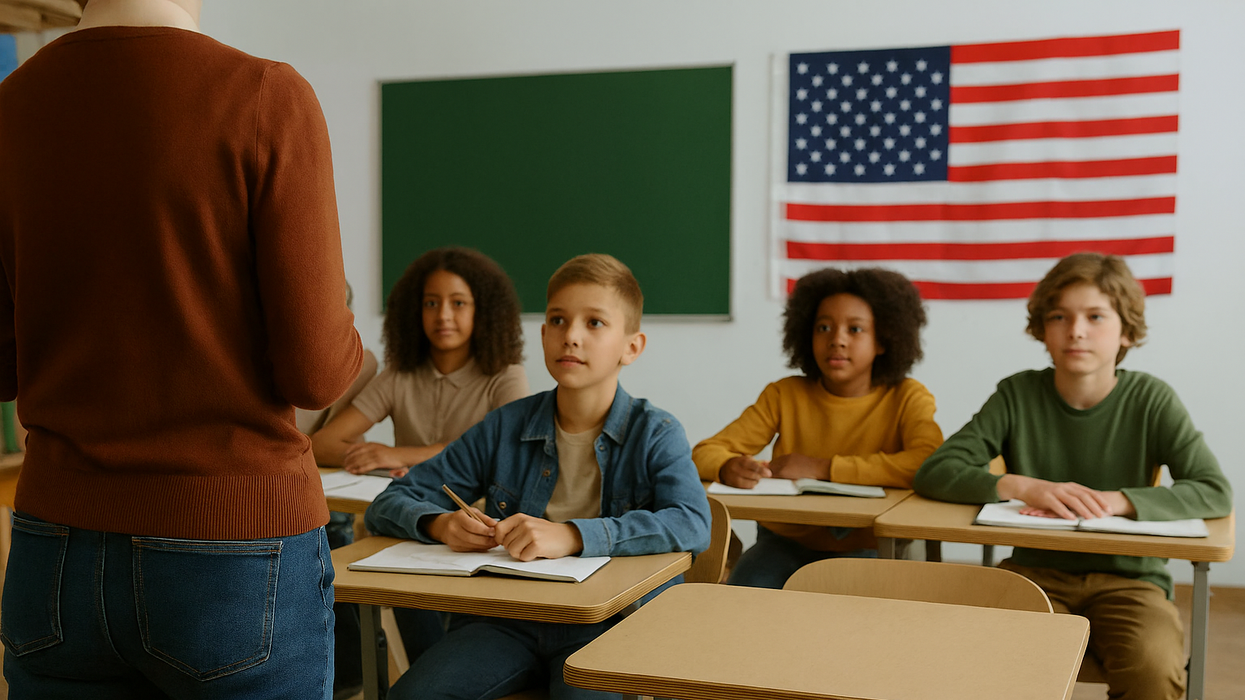Every year, as teachers return to school, they assume the responsibility of educating America’s future leaders, voters, jurors, and neighbors. This year, the responsibility feels heightened as we approach the nation’s 250th birthday on July 4, 2026. Teachers are in a position to invite students into the celebration and ensure they receive a comprehensive civic education in American history, founding principles, and the vision for the country’s future.
Civics and American history must not be reduced to the dispassionate regurgitation of names, dates, and events. Instead, these subjects should inspire curiosity and appreciation in our students, encouraging them to ask questions about our country’s founding principles and to learn from the moments of both triumph and failure in our past.
One way to welcome students into the American story is by reading and discussing texts—whether essays, speeches, novels, songs, or poems—that educate about the important historical events and ideas that have shaped the nation. For example, by reading Lincoln’s speech on the Dred Scott decision, students learn about the events of the case, the people involved, and the debates about citizenship, slavery, and the meaning of the founding documents that were dominating the political landscape in the 1850s. Learning about the past through the writings of people who lived it allows students to connect personally with the past and reflect on the diverse perspectives and experiences of Americans who have come before them.
The Jack Miller Center supports teachers in their efforts to incorporate primary sources into their instruction with students through the Founding Civics Initiative. This summer, hundreds of teachers participated in more than 30 Founding Civics Initiative professional development workshops and credit-bearing graduate courses our organization sponsored. The programs bring K-12 teachers into classrooms (or Zoom rooms) with scholars of the American political tradition to read and discuss the key documents, ideas, and historical figures that have shaped and continue to influence American politics.
A symposium at Michigan State University focused on “Great Debates in American History,” in which teachers and professors read and discussed the Federalist-Anti-Federalist debates, the Lincoln-Douglas debates, and the debate between Martin Luther King, Jr. and Malcolm X. Another program at Coastal Carolina University took a deep dive into the Bill of Rights, with educators exploring the philosophical origins of the Bill of Rights and Supreme Court cases that addressed violations of citizens’ rights.
One of the graduate courses JMC supported this year through the University of Chicago Graham School was titled “The Ancients and the Founders.” Teachers read works by Aristotle, Plutarch, John Adams, and The Federalist to learn about the ways ancient Greek and Roman thought influenced the thought of the American founders. Graduate courses are more rigorous than our typical teacher workshops; participants meet for more hours, learn more content, and earn credit upon completion. In many public school districts, teacher pay scales incentivize teachers to earn graduate credits beyond a master’s degree, so enrolling in even individual courses offers real benefits to teachers in addition to the academic and professional growth.
JMC’s American Civic Tradition Fellowship is a yearlong program for 15 teachers from across the country to learn from top scholars and from one another. Session topics included civic virtue and the Declaration of Independence, the Constitution and slavery, Lincoln and Douglass, civil discourse, and America in the world. Fellows will continue to meet through the 2025-26 school year to discuss strategies for incorporating primary texts into lessons for students.
Founding Civics programs provide K-12 teachers with the opportunity to revisit their own educational experiences; to pose the big questions, discuss texts and ideas, and engage with the arguments that have shaped American politics and history. Teachers who have a deep understanding of the important documents and ideas are well-positioned to invite students into the conversation of American history and help them understand what it means to be thoughtful, engaged citizens.
The story of the Declaration of Independence, which we’re celebrating in 2026, is just one of the instances in American history where individuals united around shared ideals and used their agency to effect positive change. Students should learn the significant names, dates, and events of 1776. But they should also learn about the ideas, debates, and compromises that made those dates significant. The Jack Miller Center supports educators to ensure that students across the country have that opportunity.
Lauren Altobelli is director of the Jack Miller Center’s Founding Civics Initiative, an effort to provide content-based professional development and classroom resources to K-12 civics, history, and government teachers across the country. She holds a B.A. and M.A. in political science from Villanova University, where she studied the political thought of the American founding.




















